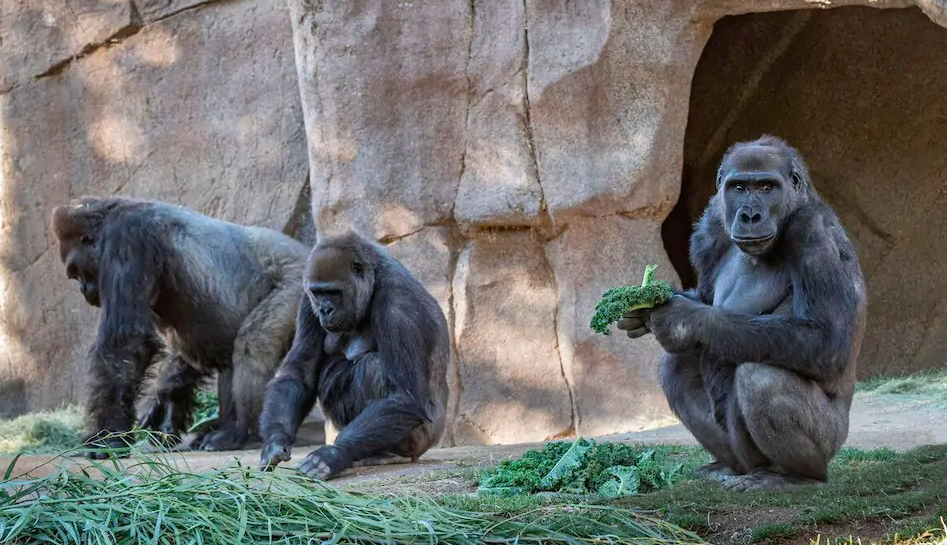WASHINGTON | An elderly gorilla infected with the coronavirus has been treated with an experimental treatment based on synthetic antibodies, the San Diego Zoo in California announced on Monday.
Winston, a 48-year-old western lowland gorilla, was tested positive like several other primates on Jan.11, during a fecal matter test.
He was the first case of natural transmission of COVID-19 to great apes, and he was allegedly infected by an asymptomatic employee, who was however wearing gloves.
“The group was infected with a new, highly contagious variant of the coronavirus which was recently identified in California,” the San Diego Zoo Global, the association managing the zoo, said in a statement.
Several gorillas have shown symptoms of a mild cough, a stuffy or runny nose and episodes of lethargy.
Due to his advanced age and poor health, Winston was examined under anesthesia. Suffering from pneumonia and heart disease, he was treated with a cocktail of heart medications, antibiotics and “monoclonal” antibodies.
These antibodies, made in the laboratory and injected intravenously, mimic the functioning of the immune system after infection with the coronavirus.
The treatment based on “monoclonal” antibodies was approved in November in the United States, where it had been used experimentally in October to treat former President Donald Trump.
Winston received a treatment that cannot be used on humans, the zoo noted.
The team of animal care workers “believe the antibodies may have contributed to its ability to overcome” the disease, he added.
Great apes are known to be susceptible to human viruses like influenza or chickenpox, due to the closeness between the two species. Man and chimpanzee thus have 98% of their DNA in common.
Winston, a dominant male whose species is listed as endangered, arrived in San Diego in 1984 and will turn 49 on February 20. He is considered to be one of the oldest residents of a zoo.
San Diego Zoo Global is now examining the possibility of vaccinating other animals with a treatment based on a synthetic version of the surface protein of the virus, intended for animal use.
Animals, wild or in captivity, are regularly vaccinated against a large number of diseases.


















































































